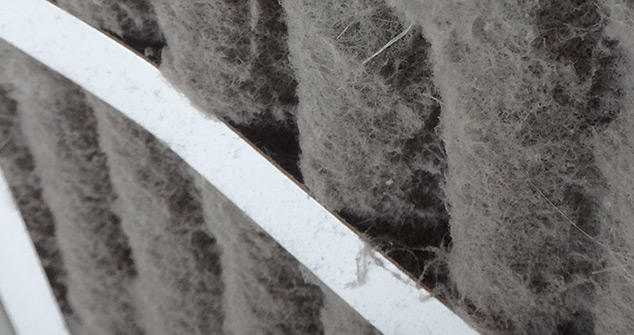Save money, save a service call

Clogged air filters could add over $80 to your electric bill every year. And it's the number one issue we see at our service calls! Checking, changing, or cleaning your filter once a month saves money and extends the life of your home's heating, ventilation and air conditioning system.
Helpful tip: Set a reminder on your phone to remind you to check and change your filters each month.
Filters are important
Air filters protect HVAC systems and collect loose particles, dirt, smoke, and pet dander from the air. Investing in high quality air filters is great, but remember: the better the filter, the faster it gets clogged and must be cleaned or replaced.
While removing a dirty filter relieves pressure on the system, it can't perform well without one. Unfiltered dust and grime accumulate on critical parts like the evaporator coil, causing unnecessary wear and tear.
The U.S. Department of Energy (DOE) advises checking your air filter once a month and replacing it at least every 3 months. To help schedule monthly check-ups, write the date on the side of the filter so you know when it needs to be checked again.
Filter Choices
Be sure to know the size of your current filter. There are several different types of filters and levels of efficiency. Filters are either flat or pleated; pleated filters offer extra surface area to hold particles, making them more efficient.
- Most common: layered fiberglass fibers reinforced with metal grating
- Better efficiency: polyester fibers
- Electrostatic filters: positively and negatively charged fibers capture smaller debris - actively pulls particles like a magnet
- Air filters are rated by a Minimum Efficiency Reporting Value (MERV). Better (and more expensive) filters mean higher MERV scores.
All Around Home Air offers a variety of high quality air filters. Request one before your next service call or tune-up.
Source: ENERGY STAR, U.S. Department of Energy, American Society of Heating, Refrigerating and Air-Conditioning Engineers, Environmental Protection Agency


 Phone: +
Phone: +